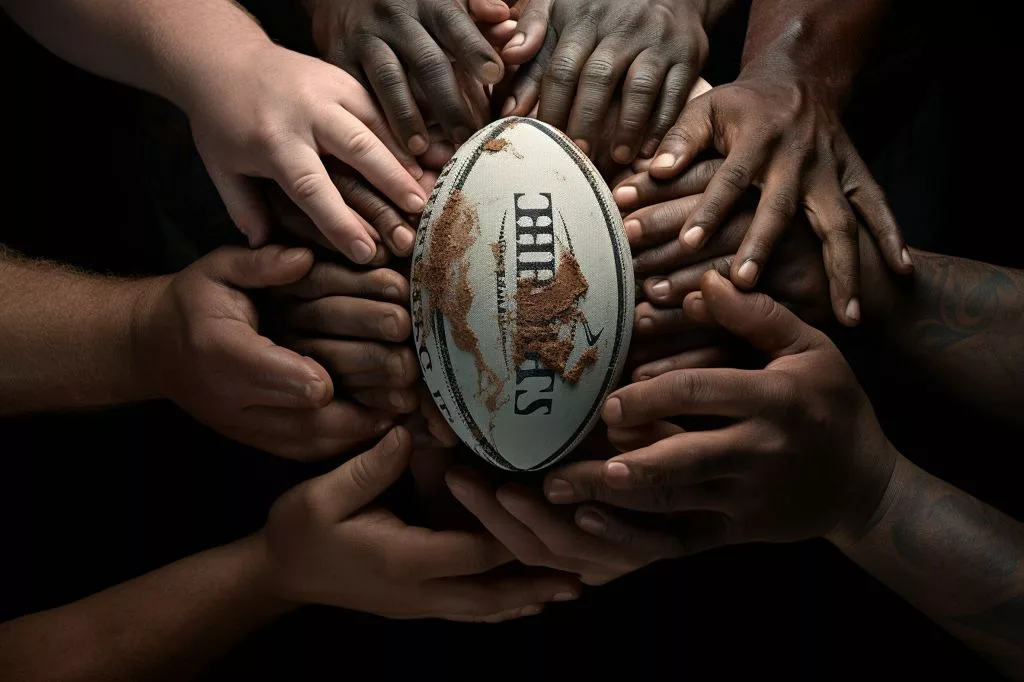South Africa’s rugby union team’s success is due to Siya Kolisi’s inclusive leadership approach, which has created a supportive and unified atmosphere. The team has established a versatile leadership structure that allows them to adjust their tactics on the field. The Springboks’ cohesiveness and mutual responsibility have laid a foundation for continued success.
What is the secret to South Africa’s rugby union success?
South Africa’s rugby union success can be attributed to Siya Kolisi’s inclusive leadership approach, which has nurtured a supportive and unified atmosphere. The team has established a versatile leadership structure that allows them to adjust their tactics on the field, with a team of leaders backing their captain. The Springboks’ cohesiveness and mutual responsibility have laid a foundation for continued success.
The moment Siya Kolisi lifted the Webb Ellis Cup in Yokohama in 2019 epitomized the monumental achievement of South Africa’s rugby union. However, the victory represents only a portion of the narrative as the Springboks prepare for their 2023 World Cup quarter-final against France.
Embracing Inclusive Leadership
A significant factor in the team’s achievements has been Kolisi’s inclusive approach to leadership. As the first black player to captain South Africa in a Test match, Kolisi’s receptiveness to his teammates’ opinions has nurtured a supportive and unified atmosphere. Centre Jesse Kriel believes that Kolisi’s open-mindedness is rare in leadership, yet it has allowed individual players to feel involved and empowered.
This sense of inclusivity has allowed the Springboks to establish a team of leaders, rather than depending on a single figurehead. Players are not afraid to make decisions and have developed a feeling of accountability. This environment of collective responsibility enables them to support one another. Kolisi himself confesses that he occasionally depends on teammates for crucial in-game decisions.
Building a Strong Support Network
Notable among these essential teammates are scrum-half Faf de Klerk and second-row Eben Etzebeth, both integral parts of Kolisi’s support network. De Klerk possesses the ability to energize his team’s performances, while Etzebeth exudes an intimidating presence that disconcerts opponents. Under the supervision of the management duo Rassie Erasmus and Jacques Nienaber, the Springboks have developed a versatile leadership structure that allows them to adjust their tactics on the field.
Although the team has not established a specific strategy for their match against France, De Klerk highlights the value of adaptability. The Springboks can switch between traditional techniques, such as box-kicking, and more inventive tactics when necessary.
Kolisi: A Charismatic, Iconic Leader
Kolisi, an all-action flanker with charisma, continues to be the team’s centerpiece even as he prepares to join France’s Top 14 rugby league. His leadership has resonated with both fans and teammates. Former Springbok fly-half Joel Stransky emphasizes Kolisi’s iconic status, attributing his leadership, playing style, and personal demeanor to his immense popularity among supporters. “He’s someone everyone wants on their side,” says Stransky.
A True Test of Unity and Adaptability
The upcoming quarter-final clash with France will be a genuine examination of the Springboks’ cohesiveness and adaptability. With Kolisi leading the way and a team of leaders backing him, South Africa’s rugby union has established a solid foundation for continued success. As they gear up for the match, they can take solace in the fact that their collaborative spirit and mutual responsibility have already brought them far.
1. What is the secret to South Africa’s rugby union success?
South Africa’s rugby union success can be attributed to Siya Kolisi’s inclusive leadership approach, which has nurtured a supportive and unified atmosphere. The team has established a versatile leadership structure that allows them to adjust their tactics on the field, with a team of leaders backing their captain. The Springboks’ cohesiveness and mutual responsibility have laid a foundation for continued success.
2. What is Siya Kolisi’s leadership approach?
Siya Kolisi’s leadership approach is inclusive, which has created a supportive and unified atmosphere. He is open-minded and receptive to his teammates’ opinions, which allows individual players to feel involved and empowered. This environment of collective responsibility enables them to support one another.
3. How has the team established a versatile leadership structure?
Under the supervision of the management duo Rassie Erasmus and Jacques Nienaber, the Springboks have developed a versatile leadership structure that allows them to adjust their tactics on the field. They have established a team of leaders, rather than depending on a single figurehead. Players are not afraid to make decisions and have developed a feeling of accountability.
4. Who are some of Siya Kolisi’s essential teammates?
Notable among these essential teammates are scrum-half Faf de Klerk and second-row Eben Etzebeth, both integral parts of Kolisi’s support network. De Klerk possesses the ability to energize his team’s performances, while Etzebeth exudes an intimidating presence that disconcerts opponents.
5. What is the value of adaptability for the Springboks?
Although the team has not established a specific strategy for their match against France, De Klerk highlights the value of adaptability. The Springboks can switch between traditional techniques, such as box-kicking, and more inventive tactics when necessary.
6. What is the significance of Siya Kolisi as a leader?
Siya Kolisi, an all-action flanker with charisma, continues to be the team’s centerpiece even as he prepares to join France’s Top 14 rugby league. His leadership has resonated with both fans and teammates. Former Springbok fly-half Joel Stransky emphasizes Kolisi’s iconic status, attributing his leadership, playing style, and personal demeanor to his immense popularity among supporters.
7. What is the upcoming quarter-final clash with France for the Springboks?
The upcoming quarter-final clash with France will be a genuine examination of the Springboks’ cohesiveness and adaptability. With Kolisi leading the way and a team of leaders backing him, South Africa’s rugby union has established a solid foundation for continued success.
8. What has brought the Springboks this far?
As they gear up for the match, they can take solace in the fact that their collaborative spirit and mutual responsibility have already brought them far.












